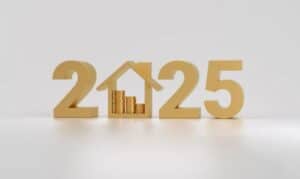Inflation is generally not good news in terms of finances. After all, an inflated currency means the currency is weaker. This can affect many things, from your income to even your bills, and it can even affect your homeowner’s association!
Are you wondering how inflation can impact the homeowner’s association? Well, it can do many things that affect them, resulting in the many decisions of the HOA being affected.
So, that said, here’s exactly how the HOA is impacted by inflation:
1. The Annual Dues May Rise
As inflation causes currencies to be less powerful, more money is required to pay for goods and services. This also means that the cost to upkeep the neighborhood and community will also rise. To match this increase in cost, your HOA may impose higher annual dues to cover the rate of inflation. Keep in mind that these inflation-tied fees will be directly related to the consumer price index, as some communities out there tend to over-increase the fees to compensate.
In other words, the annual dues that the inhabitants of the neighborhood are subject to will change depending on inflation. If inflation goes up, so will the annual dues.
2. The Cost For Assessment Increases
The general cost of assessments, along with usual dues, will rise if inflation goes up. Such an assessment is usually required when a project needs to have a price put on top to be done now or later in the future. For example, if there’s a part of a building that needs repainting in the near future but the inflation price increases, so will the cost for assessment. This can apply to many things, from the painting of a wall down to the construction of a new building. That said, this is also where the reserve funds get affected, which we will talk about.
Simply put, the cost to assess a project will change based on inflation.
3. The Reserve Funds Will Change
As mentioned previously, the reserve funds will also be affected by inflation. How so? Remember, the cost of a project that’s assessed now can change many years down the road. The purpose of the reserve fund is to ensure that these changes are dealt with, meaning that the reserve fund essentially acts as extra money in case costs go up. As such, the reserve funds will adapt to the ongoing inflation, and if that means that the inflation goes up, the reserve funds will also increase. In many cases, the funds will be numerically larger because of the increase in not only the maintenance of properties but also the supply.
Conclusion
All in all, inflation is never fun to deal with, especially if you’re under an HOA or are running it. Regardless, always remember to budget against inflation. This includes determining your cost of living and the like based on the CPI. This will ensure that you appropriately safeguard yourself and the HOA from inflation. Also, always remind yourself that inflation rates can change, so be ready to adapt and invite those with opinions to play a role in council meetings to see what can be done financially to combat inflation.
California Builder Services offers DRE public reports processing, HOA budgeting, etc. If you are looking for HOA budgeting services to help you budget properly against inflation, reach out to us today!








